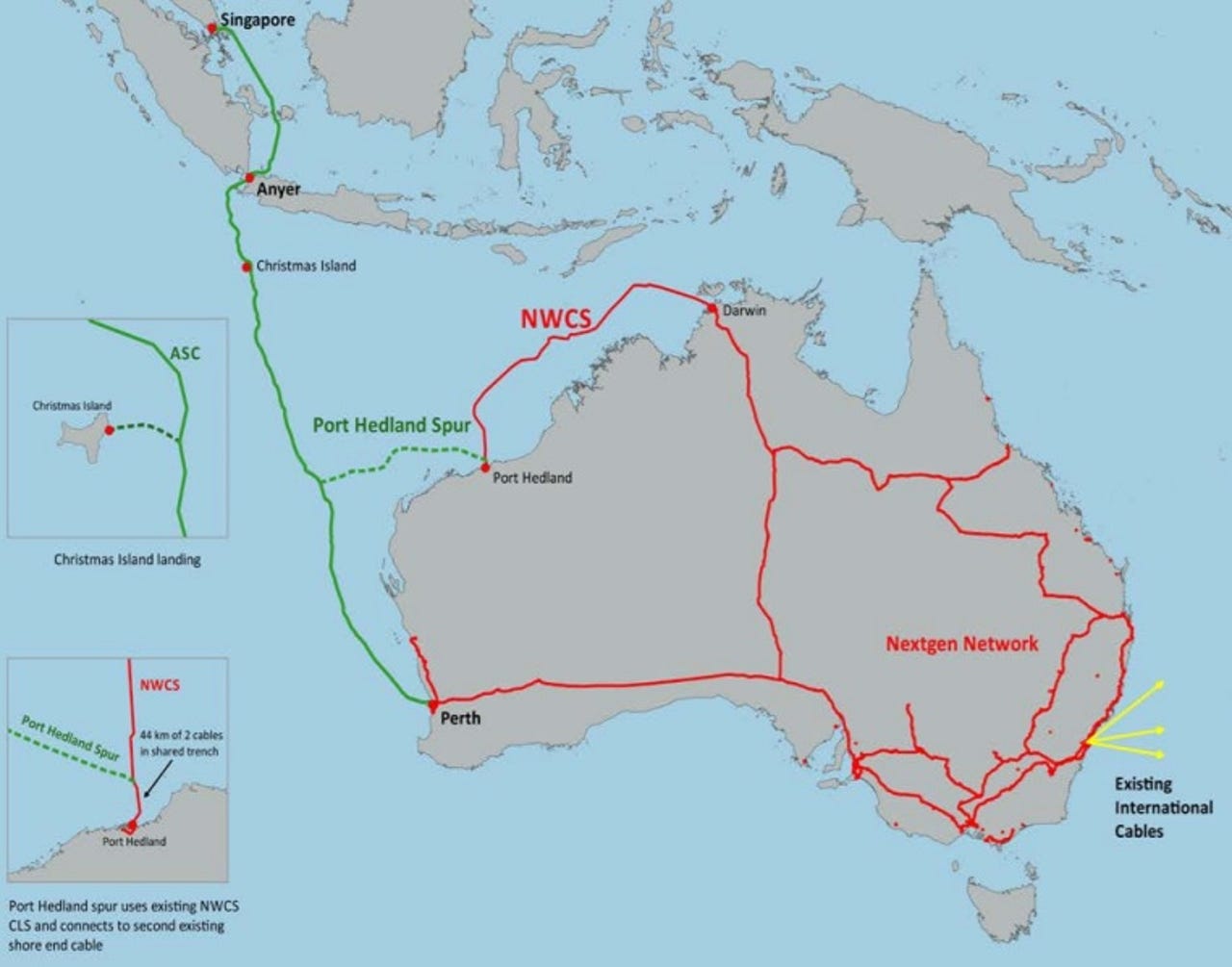Vocus to start laying Australia-Singapore subsea cable in February


Vocus Communications has announced passing the halfway point on its Australia Singapore Cable (ASC) project, with much of the progress so far being done on civil engineering works and manufacturing.
The subsea cable system, worth $170 million, will be laid between February and March 2018, head of Vocus International Luke Mackinnon revealed.
The cable is being manufactured in Calais, France, by Alcatel Submarine Networks (ASN), while its repeaters are being constructed in Greenwich in the United Kingdom. They will all be assembled in Calais ahead of being shipped to Singapore in December.
"We will perform the final splice in April, enabling the commissioning to begin. That will take place in May and June, giving us a ready-for-service date soon after," Mackinnon said.
"We expect it to arrive either late December or early January."
One third of the cable and repeaters will then be offloaded at Singapore to begin being laid in February by the Ile de Re cable laying ship, while the remaining two thirds will be transferred to the Ile de Batz ship in Christmas Island.
The former ship will lay cable between Singapore and Christmas Island, while the latter will travel from Christmas Island to Perth. Both legs will use different cable-laying techniques, as the first leg of the cable must be buried because it will be laid in the shallow and busy Java Sea route, Vocus said.
"From Singapore to Christmas Island, the cable will be buried up to 4 metres below the seabed using a 40-tonne plough. This is far slower than the usual cable-laying technique; the ship can only move at a few hundred metres per hour," Mackinnon explained.
"The boat laying [the Christmas Island to Perth] section can move far quicker, covering kilometres in an hour."
Vocus had in August confirmed the ASC would be completed ahead of schedule, with services to be launched in July 2018 despite adding a spur to Christmas Island, ahead of competitor cable systems Indigo and Trident.
Vocus signed ASN in December to help build the 4,600 kilometre ASC, which is designed to carry 40Tbps at a minimum across four fibre pairs.
Originally a 50-50 joint-venture deal between Vocus and Nextgen Networks, Vocus subsequently purchased Nextgen Networks for AU$700 million in June 2016, paying an additional AU$27 million for the ASC and AU$134 million for the North West Cable System (NWCS).
The $139 million 2,100km fibre-optic NWCS went live in September 2016.
The 15,000km $350 million Hawaiki Transpacific Submarine Cable System connecting Australia and New Zealand to Hawaii and the West Coast of the United States similarly began being laid earlier this month.
Telecommunications carriers and consortiums have been racing to build out subsea cable capacity across the Asia-Pacific region, driven by the rapid increase in data usage globally.
In addition to the ASC, NWCS, Indigo, Trident, and Hawaiki, these cables include Superloop's Indigo system; Southern Cross Cable Network's NEXT cable; the Asia-Pacific Gateway (APG); the FASTER cable; the Jupiter subsea cable being built by a consortium including Facebook, Amazon, SoftBank, NTT Com, PLDT, and PCCW; and Superloop's Hong Kong cable.
Related Coverage
HFC was fine when Telstra had it: Penn
The HFC network works well in delivering Telstra broadband and Foxtel pay TV services, Andy Penn has said, with the issues cropping up once NBN began making technology changes to it.
TPG mobile network could sign up two in five Australians: Telsyte
Telsyte has found that two fifths of Australians are receptive to moving to the nation's fourth mobile network once it is available should it throw in high data allowances and bundling deals.
How an IoT sensor is helping Australian milk reach China faster
Telstra, Peloris, Chinese quarantine, Sendum, M2M Connectivity, and multiple Australian milk producers are bringing fresh dairy to China within 36 hours, with the companies using IoT sensors for tracking and temperature monitoring.
Mobile blackspot 'priority' locations announced
The Australian government has identified 106 mobile blackspot locations across all states for AU$60 million in funding under its 'priority' round, though the Opposition has again argued that the selection was politically driven.